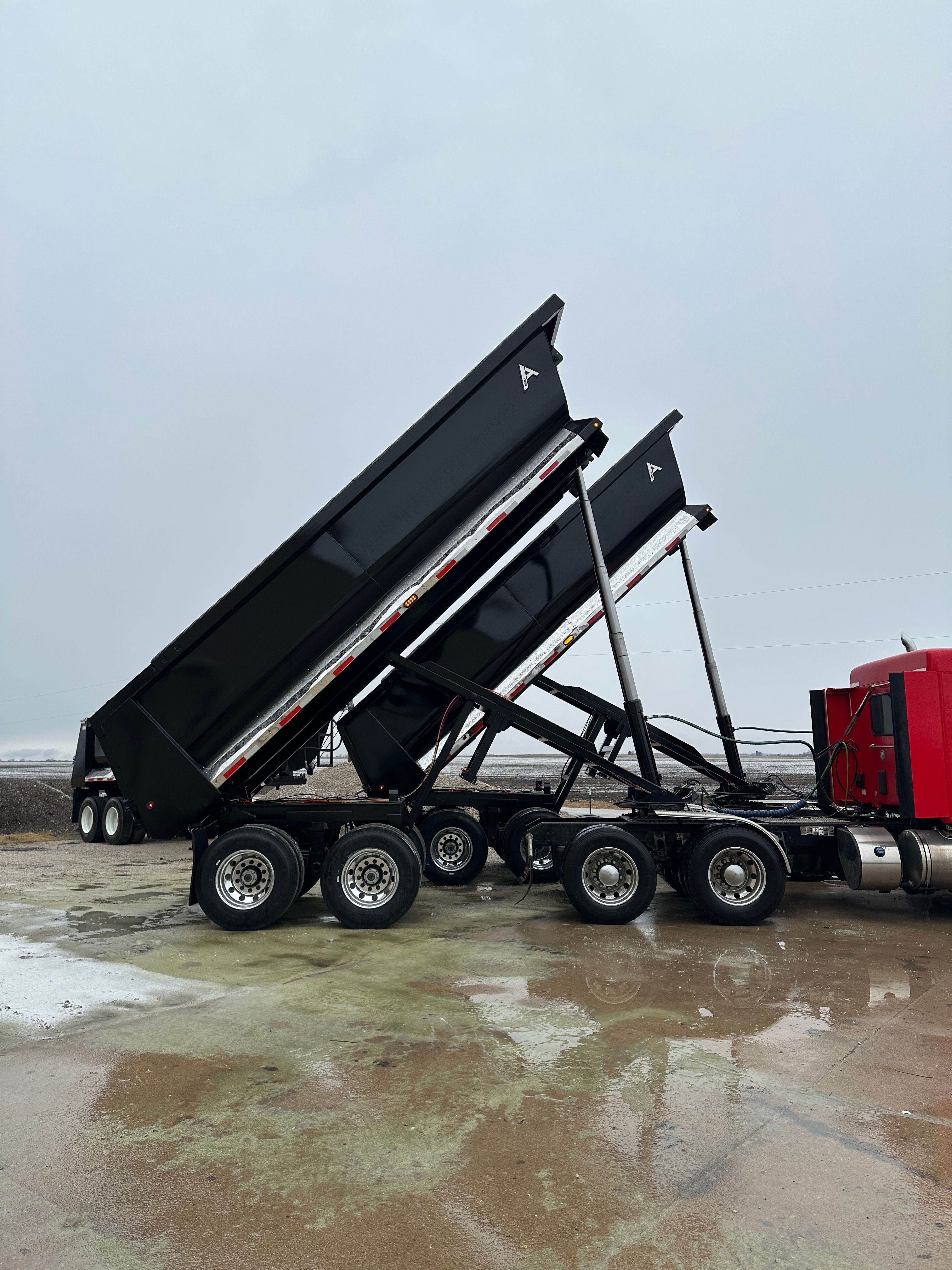
Top 5 Mistakes to Avoid When Buying a Dump Trailer
tj@civsav.com
© 2026 Civilized Savage
Based in USA
tj@civsav.com
Buying a dump trailer is a big investment, but many people get it wrong. They focus too much on price tags or how much the trailer can haul. What they miss are the details that really matter things like frame strength, lift systems, and legal load capacity. These features decide how long your trailer lasts, how safe it is on the road, and how well it holds up under pressure. In this post, we’ll cover five of the most common mistakes buyers make so you can avoid expensive regrets later.
The frame is the backbone of a dump trailer and not all frames are built the same. One of the biggest mistakes buyers make is choosing the wrong hoist system or not understanding frame designs.
Scissor hoist vs. direct push A scissor hoist uses a double-arm lift that gives stronger, more even pressure during dumping. It’s great for heavy, uneven loads like debris or rock. Direct push systems use a single cylinder that pushes the bed up from one end. They’re cheaper but can twist the trailer if the load shifts wrong. For heavy-duty jobs, a scissor hoist gives you better control and fewer stress points.
Steel gauge confusion Don’t fall for high numbers. A “12-gauge” steel wall is thinner than a 10-gauge one. Many low-cost trailers use thinner steel to save weight and money, but it bends, rusts, or cracks faster. You need to match your build quality to the work you plan to do.
At ALKO, our demolition models use reinforced tubing and thick-gauge steel frames to handle extreme loads — from concrete chunks to scrap metal. These trailers are designed to work, not just look tough.
A lot of buyers guess at capacity. They either go too big and overload their truck or too small and end up making twice as many trips. That’s wasted time and money.
Yardage vs. weight Dump capacity isn’t just about how many cubic yards your trailer can hold. You also need to consider weight. Wet dirt, concrete, and asphalt are much heavier than mulch or leaves. A 14-yard trailer full of gravel could push you past legal weight limits or damage your axles.
Know your limits Ask yourself: What will I be hauling 80% of the time? Then size your trailer for that. Overestimating can lead to poor fuel economy, unsafe handling, and faster wear on your truck.
ALKO offers 24 ft dump trailers and custom lengths built for real job types not just showroom numbers. Whether you need bulk volume or dense payloads, we’ll help you spec the right setup.
This one’s easy to miss — and it can cost you a ticket. Many dump trailers don’t come with a tarp system, and even fewer include one that meets legal standards.
DOT rules matter
If you're hauling loose materials, most states require that your load is covered. You’ll also need working brake lights, reflective markers, and side lighting. If your trailer doesn’t meet these standards, it’s not just unsafe — it’s illegal.
The right tarp system saves hassle Manual tarps are common, but if you’re dumping several times a day, they get frustrating fast. Electric tarp kits save time and keep you compliant every time you hit the road.
ALKO trailers come ready for LED lighting, and we offer electric tarp systems that are built to handle daily use. No shortcuts, just gear that works like it should.
It’s tempting to save a few bucks upfront, but buying from a cut-rate builder can cost you a lot more down the line.
No support = big problems If something breaks and there’s no warranty, no parts, and no one to talk to — you’re stuck. That means downtime, delays, and money out of your pocket. Even small things like brake lines or hinges can be hard to find if the trailer isn’t made locally.
Service matters Good dealers don’t just sell trailers — they help you register, service, and upgrade them. A strong warranty shows the builder stands behind their work.
ALKO trailers are built in the U.S. and backed by real people who know the equipment. We offer support, parts, and honest help before and after the sale.
Not all dump trailers are created equal. Just because two trailers are the same size doesn’t mean they’re meant for the same work.
Know the job, pick the build Demolition jobs need heavy steel, strong welds, and reinforced hoists. Frameless trailers offer better stability for dense loads, while quarter-frame trailers are great when weight savings and maneuverability matter. Landscaping crews might need lighter builds with faster cycle times.
Examples of good job-fit matching
ALKO helps contractors match trailer builds to real-world work, not just spec sheets. Every trailer we build starts with how you plan to use it.
Buying the right dump trailer isn’t just about price tags or length specs. It’s about how that trailer performs when the job gets rough.
Here’s a quick recap of what to avoid
The truth is, smart choices now save a lot of headaches later — fewer breakdowns, less downtime, and better resale value when it’s time to upgrade.
Have questions? Talk to our team about what works best for your jobs. We’re here to help you spec the right trailer for real work, not just the brochure.
Get in touch
© 2025 Civilized Savage
